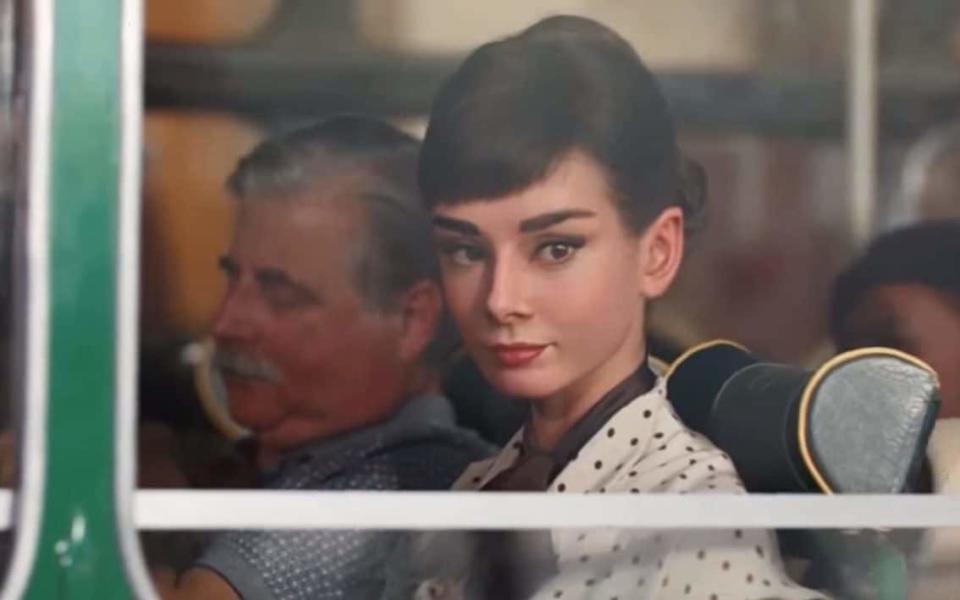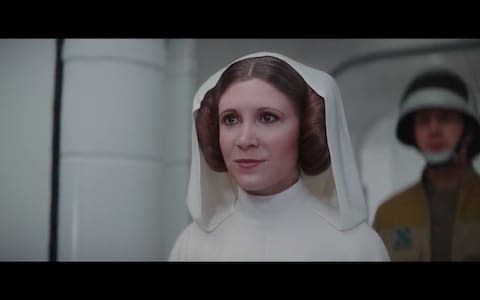How Hollywood actors are writing wills to control their CGI selves from beyond the grave

Hollywood stars can now be recreated so perfectly through technology that actors are drawing up wills to control how their digital selves perform long after their death, the Oscar-winning British special effects team behind the film Gravity has said.
The revelation comes after another British company, CereProc, helped to produce an audio recording of John F Kennedy “delivering” the speech he was due to give on the day in 1963 that he was assassinated.
According to the special effects company Framestore, however, technology now allows for much more. Sir William Sargent, Framestore’s chief executive, says special effects have broken the equivalent of the four-minute mile, which is to make a digital human that convinces viewers it is real.
The result, he said, was that Hollywood is toying with ideas that feature older actors, like Sean Connery and Harrison Ford, playing opposite digital creations of their younger selves. “The only thing stopping that is cost,” said Sir William. “But whether it happens in one year or five, it will happen.”
I worry about the JFK example. There are so many sensitivities. You have to balance educational benefits against the wishes of friends and family
Sir William Sargent
Framestore was responsible for a chocolate bar commercial that featured a digital recreation of Audrey Hepburn, after approval from her sons. “It was a high-risk venture as they could have stopped it at any time,” said Sir William.
Today’s actors, however, are not leaving decisions about future digital roles to their children. “We can recreate dead actors,” said Mike McGee, Framestore’s co-founder. “Actors alive now are already selling their image rights for films which will be made when they’re dead. In their will, they have decided what constraints they want.”
The technological barriers preventing a digital recreation so perfect as to be undetectable have already been passed, according to Tim Webber, the effects supervisor on Gravity. “The actual world and the imagined world are coming together,” he said. “Visual effects have merged with the real.”
That poses ethical questions that Framestore never imagined it would encounter. “I think about the responsibilities all the time,” says Sir William. “I worry about the JFK example. There are so many sensitivities. You have to balance educational benefits against the wishes of friends and family. Each time you’re weighing it up.”
The Framestore team, talking exclusively to The Daily Telegraph ahead of our series on British technology, running all next week, revealed that such developments might include the use of artificial intelligence alongside digital representations of dead actors.
“If you add it all together,” says McGee, “they [dead people] can begin to have new consciousness. It’s only a small step to interactive conversations with holographic versions of dead celebrities or historical figures.”

The commercial and philosophical ramifications are immense. A full examination of the extraordinary part British companies are playing in the creation of virtual, computer-generated alternative worlds will form part of next week’s Telegraph series Hunting the UK’s First Trillion Dollar Company.
For now, Framestore is marrying excitement about new technological possibilities with a degree of trepidation.
“I would be deeply unhappy if I was creating things that were emotially or physically damaging,” said Sir William.
“There are some places we must not go.”

 Yahoo Finance
Yahoo Finance 